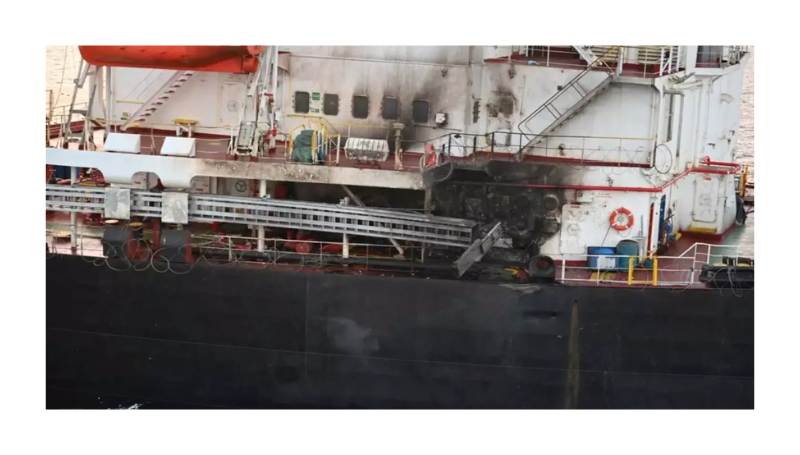Alestikal.net, July 23, 2025
“The method of attack is more advanced and risky than before, aiming to cause significant damage to international navigation and deliver a shock, which immediately raises insurance costs to an extreme level.”
After the Houthis restarted attacks in the Red Sea in support of Gaza following a months-long break, many have questioned why now and if the U.S. could restart its “military strikes” in Yemen, which have been paused since May 2025.
In just two days—July 7 and 8, 2025—the Houthis targeted and sank two Greek cargo ships, Eternity C and Magic Seas, accusing them of heading to Israeli Occupation ports.
Accusations Toward Iran
The U.S. denounced the attacks as “acts of terrorism” without justification, seeing them as clear evidence that Iran-backed Houthis remain a serious threat to security and commerce in the region’s waters.
U.S. Ambassador to the UN Dorothy Shea said Washington is committed to cutting off the Houthis’ funding sources, urging the Security Council to resolve obstacles facing the UN Panel of Experts on Yemen.
In a statement on July 10, Shea also accused Tehran of ongoing coordination with the Houthis, stating that the recent Red Sea attacks and their alignment with Iran in targeting “Israel” underscore the need for continued vigilance by the Security Council.
In a statement on July 8, the U.S. State Department described the Houthi attacks as a persistent threat to regional maritime freedom, economic stability, and security, blaming “Iran-backed rebels” for undermining navigation in the Red Sea.
The statement emphasized that the U.S. will continue taking necessary steps to protect freedom of navigation and commercial shipping from what it called “Houthi terrorist attacks,” urging the international community to collectively condemn them.
Meanwhile, German Foreign Minister Johann Wadephul suggested that Iran bears responsibility for the Houthis’ actions, saying Tehran should use its influence to stop the group from attacking ships in the Red Sea.
Speaking during a press conference in Vienna alongside his Israeli and Austrian counterparts, Wadephul stressed the need for broader dialogue with Iran—not only on its nuclear program, but also its regional behavior.
The British Embassy in Yemen also condemned the attacks in a statement on July 13, calling the targeting of civilian ships and disruption of maritime freedom a violation of international law. It warned that continued assaults risk obstructing trade flows and undermining prospects for sustainable peace, urging the Houthis to immediately halt their attacks. ….SOURCE


